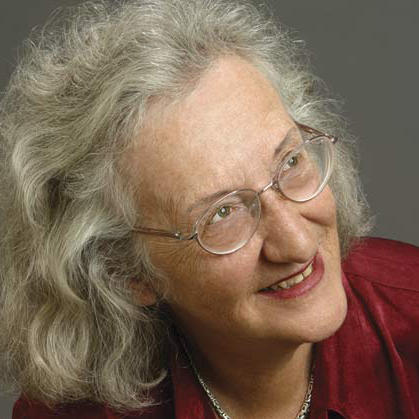

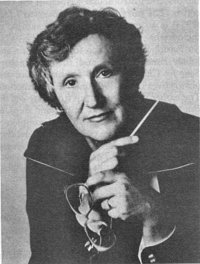 TM: It's different for
different pieces. Sometimes I have been thinking about a piece
for a
long time, and for one reason or another I haven't
been able to get to it. Perhaps I have been finishing off
something else, so
it has to go into cold storage. I hope that it doesn't lose some
of
its savor for me when I take it out and begin work on it. Take,
for instance, Narcissus
[(1987), for flute and digital delay system].
I had the idea for that
really quite a long time before I was able to start work on it, and I
couldn't wait to start. That piece did make use of something not
very new,
technologically, because in the old days it used to be tape loop
or tape feedback. Now, of course, it's done by digital delay
system, so new technology creeps in there, but it's not, actually, a
very new idea. To write a 15-minute piece for solo flute is
quite a tall order to make it really carry, and I didn't want to
do a flute-and-piano piece; I wanted to do something different.
The idea came to me that if I used this digital delay or echo
feedback —
which you hear on practically
every television ad —
and it was about Narcissus, it would
work because the live flute is Narcissus but the feedback represents
his reflection. So it works dramatically as an idea, as well as
making use of a new technology.
TM: It's different for
different pieces. Sometimes I have been thinking about a piece
for a
long time, and for one reason or another I haven't
been able to get to it. Perhaps I have been finishing off
something else, so
it has to go into cold storage. I hope that it doesn't lose some
of
its savor for me when I take it out and begin work on it. Take,
for instance, Narcissus
[(1987), for flute and digital delay system].
I had the idea for that
really quite a long time before I was able to start work on it, and I
couldn't wait to start. That piece did make use of something not
very new,
technologically, because in the old days it used to be tape loop
or tape feedback. Now, of course, it's done by digital delay
system, so new technology creeps in there, but it's not, actually, a
very new idea. To write a 15-minute piece for solo flute is
quite a tall order to make it really carry, and I didn't want to
do a flute-and-piano piece; I wanted to do something different.
The idea came to me that if I used this digital delay or echo
feedback —
which you hear on practically
every television ad —
and it was about Narcissus, it would
work because the live flute is Narcissus but the feedback represents
his reflection. So it works dramatically as an idea, as well as
making use of a new technology.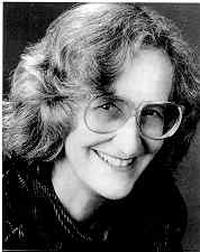 TM: Ohhhhh. Well, I
guess somewhere in the middle. Some of my pieces are lighter and
some of my pieces have
more serious application. For instance, in the opera I
certainly hope to grab people. In fact, in Norfolk, when Mary, Queen of
Scots was done, somebody said they really
liked the story. They weren't quite sure they understood the
music, but they really liked the story. Now I was very
pleased by that because I made story, after all, and what they didn't
realize was that the music actually told
the story. The story is there, of course, but the music really
held the story together. They hadn't realized that, but they were
held by what
was happening on stage. So I was pleased because it meant that
they had taken the first step; something had grabbed them, and I hoped
they would go
back. Maybe they would then hear more of the
music. So it was a first step for somebody who was
not very familiar with contemporary music, who didn't know the style
particularly well, and nevertheless was held by something.
So that I was pleased with.
TM: Ohhhhh. Well, I
guess somewhere in the middle. Some of my pieces are lighter and
some of my pieces have
more serious application. For instance, in the opera I
certainly hope to grab people. In fact, in Norfolk, when Mary, Queen of
Scots was done, somebody said they really
liked the story. They weren't quite sure they understood the
music, but they really liked the story. Now I was very
pleased by that because I made story, after all, and what they didn't
realize was that the music actually told
the story. The story is there, of course, but the music really
held the story together. They hadn't realized that, but they were
held by what
was happening on stage. So I was pleased because it meant that
they had taken the first step; something had grabbed them, and I hoped
they would go
back. Maybe they would then hear more of the
music. So it was a first step for somebody who was
not very familiar with contemporary music, who didn't know the style
particularly well, and nevertheless was held by something.
So that I was pleased with.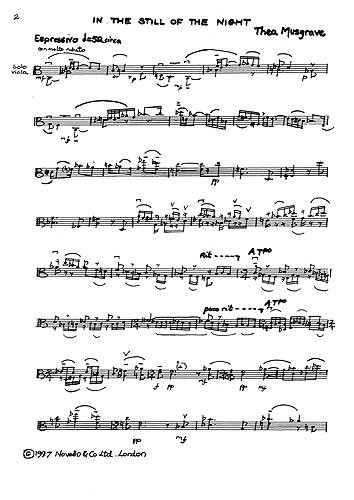 TM: You try
to make it a good piece; it doesn't always
happen. It's something you don't have total control
over. Like with all artists, you really
try to make it absolutely the best that you can at that
particular moment, but for one reason or another it
may not quite work out the way you had hoped. In my own case, and
I guess with a lot of people, it goes in kind of waves. You get
on a roll and you write a certain number of pieces in that kind in
style, and then there comes a patch where it's more difficult, where
you're changing. New things are coming into the
style, and you have to find new things. You're finding your
path, and maybe one or two pieces at that stage are much
more difficult to write because you're finding new ground. You
work through that and get on another roll. That I don't
have control over because I don't want to go on writing the old
piece. You have to forge on; you have to allow yourself
to explore new things, I believe. It has to be fresh and new and
interesting, always.
TM: You try
to make it a good piece; it doesn't always
happen. It's something you don't have total control
over. Like with all artists, you really
try to make it absolutely the best that you can at that
particular moment, but for one reason or another it
may not quite work out the way you had hoped. In my own case, and
I guess with a lot of people, it goes in kind of waves. You get
on a roll and you write a certain number of pieces in that kind in
style, and then there comes a patch where it's more difficult, where
you're changing. New things are coming into the
style, and you have to find new things. You're finding your
path, and maybe one or two pieces at that stage are much
more difficult to write because you're finding new ground. You
work through that and get on another roll. That I don't
have control over because I don't want to go on writing the old
piece. You have to forge on; you have to allow yourself
to explore new things, I believe. It has to be fresh and new and
interesting, always.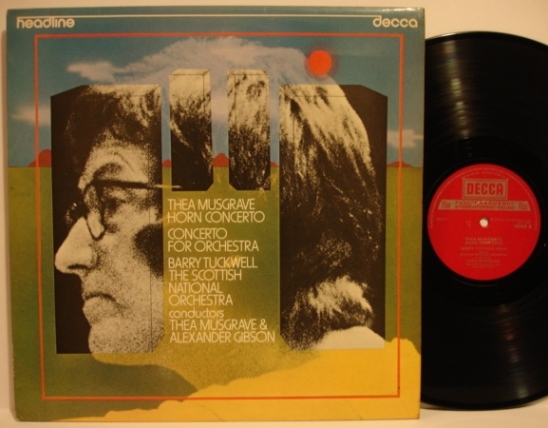 BD: What about the
recordings?
BD: What about the
recordings? 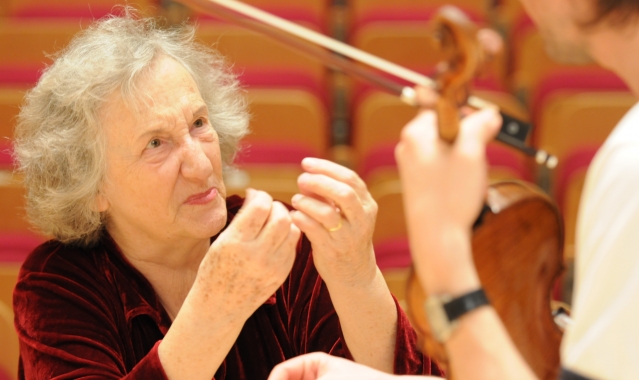 BD: Is the music of Thea
Musgrave great?
BD: Is the music of Thea
Musgrave great?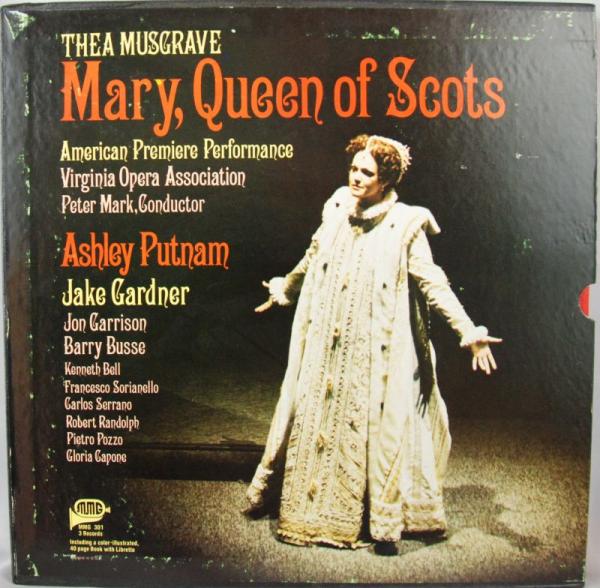 TM: Yeah!
Yeah. But on the other hand, another recent opera
was Harriet, The Woman Called Moses,
which is very different from my
experience. What grabbed me about that was
the universality of that experience. It can speak to
everybody. [Harriet, The Woman
Called Moses (1984), opera
in two acts; libretto by the composer based freely on the life of
Harriet Tubman; commissioned jointly by the Virginia Opera and the
Royal Opera House, Covent Garden] I think that that's
something else that an art can do —
transcend time and
space. With time, hopefully through seeing Mary, Queen of
Scots, one can understand something about her even though she
lived so
many hundreds of years ago. Harriet
for me is a big space difference. Coming from Scotland
and talking about slavery in Maryland is a long way
from my own personal experience, yet there's something that's universal
about the kind of courage that she had that can speak to
everybody. That can hopefully be a universal experience.
People can speak to one another through an art and reach
another kind of understanding which goes beyond just words.
TM: Yeah!
Yeah. But on the other hand, another recent opera
was Harriet, The Woman Called Moses,
which is very different from my
experience. What grabbed me about that was
the universality of that experience. It can speak to
everybody. [Harriet, The Woman
Called Moses (1984), opera
in two acts; libretto by the composer based freely on the life of
Harriet Tubman; commissioned jointly by the Virginia Opera and the
Royal Opera House, Covent Garden] I think that that's
something else that an art can do —
transcend time and
space. With time, hopefully through seeing Mary, Queen of
Scots, one can understand something about her even though she
lived so
many hundreds of years ago. Harriet
for me is a big space difference. Coming from Scotland
and talking about slavery in Maryland is a long way
from my own personal experience, yet there's something that's universal
about the kind of courage that she had that can speak to
everybody. That can hopefully be a universal experience.
People can speak to one another through an art and reach
another kind of understanding which goes beyond just words.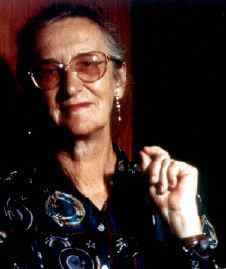 BD: Do you
enjoy the travel all over the world, taking your music to new places?
BD: Do you
enjoy the travel all over the world, taking your music to new places?|
 |
This interview was recorded in the composer's apartment in New
York City on March 21, 1988.
Portions (along with recordings)
were used on WNIB two months later, and again in 1993 and 1998.
This
transcription was
made and posted on this
website in 2011.
To see a full list (with links) of interviews which have been transcribed and posted on this website, click here.
Award - winning broadcaster Bruce Duffie was with WNIB, Classical 97 in Chicago from 1975 until its final moment as a classical station in February of 2001. His interviews have also appeared in various magazines and journals since 1980, and he now continues his broadcast series on WNUR-FM, as well as on Contemporary Classical Internet Radio.
You are invited to visit his website for more information about his work, including selected transcripts of other interviews, plus a full list of his guests. He would also like to call your attention to the photos and information about his grandfather, who was a pioneer in the automotive field more than a century ago. You may also send him E-Mail with comments, questions and suggestions.